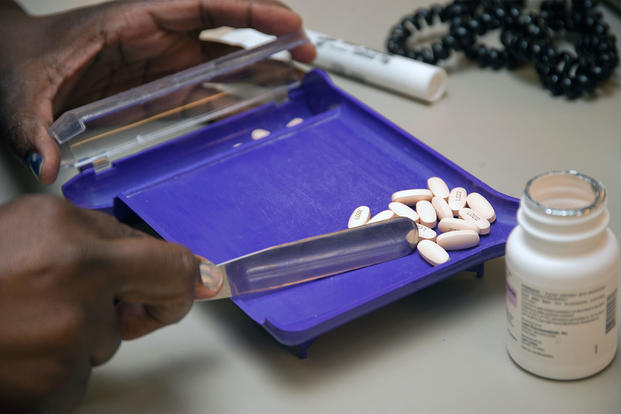Results of a recent survey of Tricare users show most are now worried about how to afford their medications after a dramatic cost increase Feb. 1.
The survey by the Military Officers Association of America (MOAA) was conducted in June. Results, which were not released in full, were compared to feedback from a similar survey fielded in December before Tricare made major changes to its programs.
Among those changes was the pharmacy fee increase, which bumped mail-order generic drugs from free to $7 for a 90-day supply, among other changes, and a major overhaul of Tricare's plans, health care fee structure and region system.
More than half of respondents said they are "somewhat" to "very concerned" about pharmacy costs, Kathy Beasley, MOAA's director of government affairs for health issues, wrote in a release. That, she said, is a "dramatic shift" from the previous results.
About 8,500 people responded to the June survey -- more than double the number of respondents on last year's survey, MOAA officials said.
In the last survey, 42 percent of respondents said they were "very satisfied" with their medication costs. But this time, only 28 percent said they were "very satisfied," while 22 percent were either "very" or "mostly dissatisfied."
And satisfaction in Tricare's other coverage and cost wasn't much better, the survey showed. According to MOAA's release, only 50 percent of those using Tricare Select, previously known as Tricare Standard, were "very" or "mostly satisfied," while 28 percent were "very" to "mostly dissatisfied."
Beasley told Military.com she expects those dissatisfaction rates to go up as more Tricare beneficiaries use the benefit under the new rate scheme. She said anecdotal comments left through the survey showed that users who have felt the most pinch are also those who are actively using the benefit for long-term-care plans like physical therapy -- and paying the price.
"People don't realize these fees and how it's going to affect them ... until they get by them," she said.
MOAA plans to field a third survey in December, she added.
-- Amy Bushatz can be reached at amy.bushatz@military.com.













